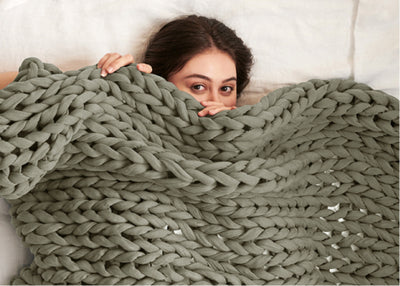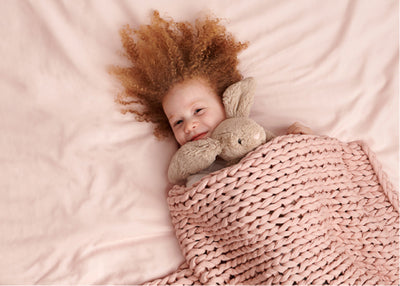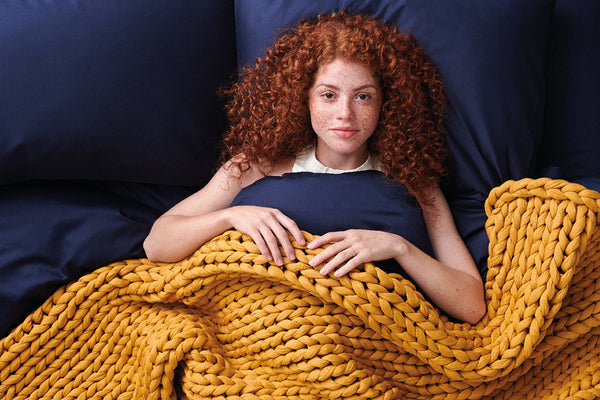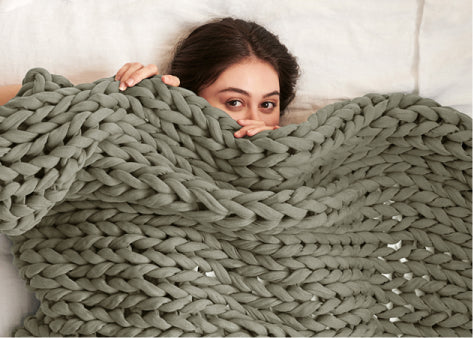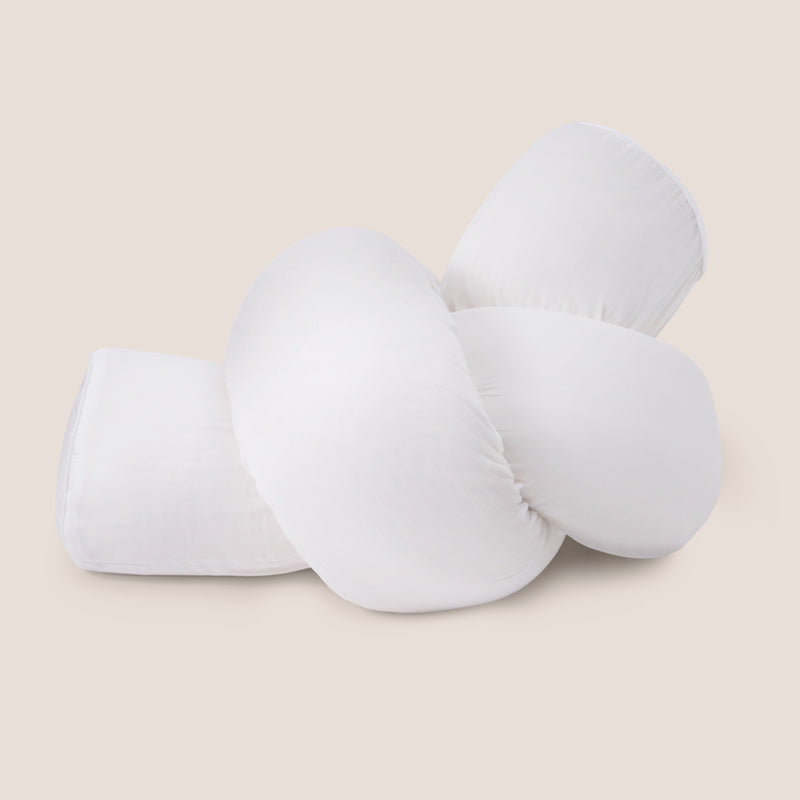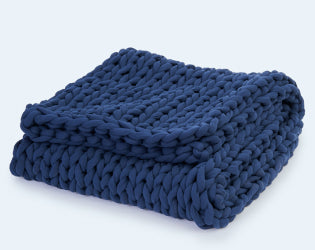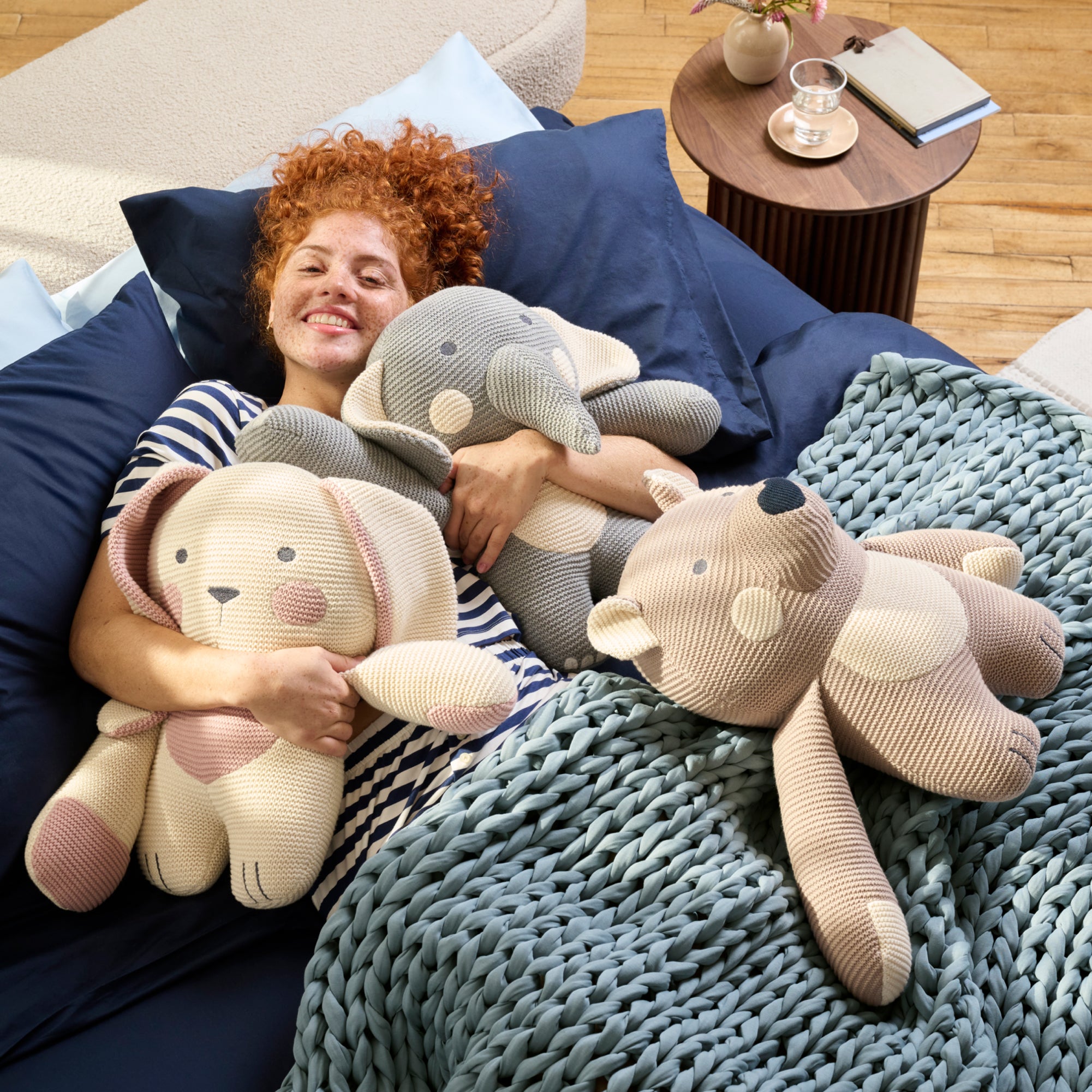How To Wash Pillows (From Decorative to Down to Foam)
Here we discuss the ins and outs of keeping your pillows clean and cozy in a way that maintains longevity. Since most pillows have a lifespan of 1 to 2 years, we also share tips on how to choose a good pillow that is made with sustainable materials.
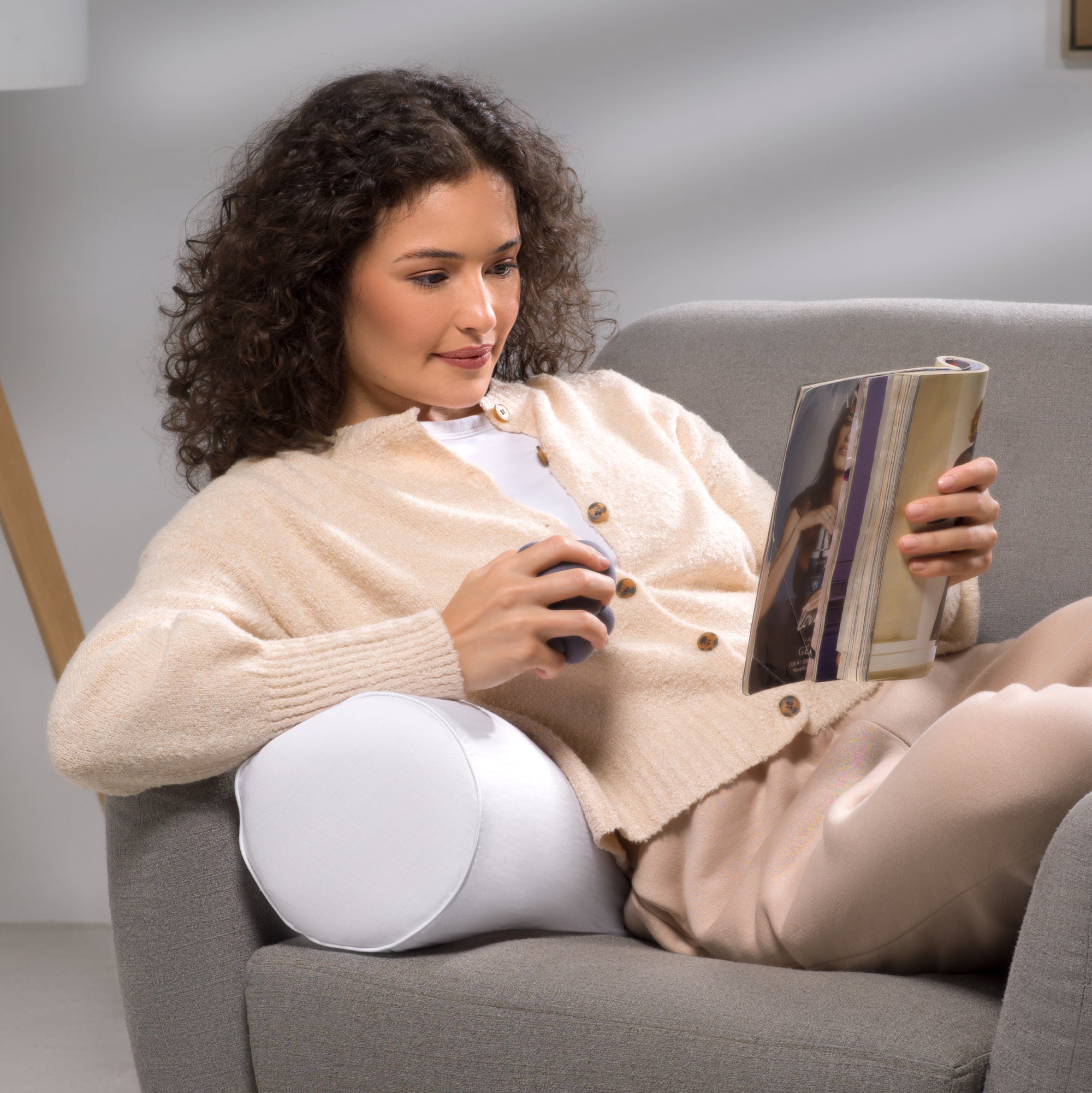
Bearassentials
Remember to check the care label on your pillows before washing them at home.
It is best to invest in pillows made of sustainable and biodegradable materials.
To make your pillows last longer, fluff them regularly, use pillow covers, and let them sunbathe once in a while.
Did you know?
The oldest surviving pillow dates back to 7000 BC and was found in a cave in South Texas. It was made from a rock and wrapped in a reed mat.
Proper pillow care is vital to keeping your sleeping companions fresh and comfy. In this blog, we break down the do’s and dont’s of washing, drying, and caring for your pillows. Be it decorative pillows, down pillows, foam pillows, or feather pillows, this guide can help you ensure that your pillows stand the test of time and offer you many nights of peaceful slumber.
How To Wash Pillows At Home
You can wash your pillows in a top-loading washer or a front-loader machine. There are ways to dry clean pillows at home but it is important to know that dry-cleaning pillows at home can be a bit tricky. Most traditional dry cleaning methods use special solvents that aren't easy to replicate in a home setting.
Let’s break down the washing process into a few easy-to-follow steps. First, here’s what you will need:
- Pillows
- Soap (delicate and gentle detergents are best)
- Washing machine
- Dryer (or sunshine)
Next, here are the directions you may follow to keep your pillows in tip-top shape… while maintaining the comfort of being at home:
1. Check the Pillow Label: The label on your pillow will tell you if it's okay to wash in a machine or if it needs to be dry-cleaned.
2. Off with the Pillowcases: First, remove any pillow cases or covers as these are washed separately.
3. Shake The Pillow and Spot Treat: Hold your pillow and give it a good shake outside. This helps get rid of dust, hair, and other fluff your pillow has collected. Check for any spots or stains. If you see any, treat them with a stain remover before washing.
4. Load the Machine: If your washing machine is big enough, you can wash two pillows together. If not, one at a time is fine. Small, removable cushion covers made of machine-washable fabric can usually be washed in the machine. However, larger or non-removable cushions may not fit in a standard washing machine and may need to be dry-cleaned instead.
5. Consider Washing Only Pillows: While you can wash pillows with sheets, it’s recommended to wash them separately to ensure an even clean and avoid the sheets and pillows becoming entangled.
6. Pick the Right Setting and Detergent: Deciding on what cycle to wash pillows, depends on each product’s care instructions, but most recommend setting your washing machine to a gentle or delicate cycle. A warm water setting is ideal. Choose a delicate or eco-friendly detergent and to keep your pillows in the best shape, and avoid using bleach.
7. Extra Rinse: After the regular wash, do an extra rinse cycle. This makes sure all the soap is rinsed from the pillow.
8. Get Rid of Extra Water: Let the machine drain the water, and then gently squeeze any remaining water from your pillows. Steer clear of twisting or wringing as this could deform the original shape of the pillow.
These tips on how to clean pillows at home are a starting point but keep in mind that not all pillows are machine washable. Feather or memory foam pillows usually need a different kind of care. So always read the label and follow what it says.
Most pillows also come with instructions on how they can be dried. Let’s take a closer look at how to dry pillows after washing them at home.

How Should I Dry My Pillows?
Now that you know how to wash your pillows at home, we can look at practical steps to follow when drying them. Here’s how:
1. Shake The Pillows: First, give your pillows a gentle shake to fluff them up. This helps get rid of some moisture.
2. Sunlight Magic: If the weather is sunny, placing your pillows outside in the sun is a great idea. Not only does it dry them, but it also helps kill any dust mites and leaves them smelling fresh. Just remember to flip them over now and then to ensure they dry evenly. It can take a full day or more, so you will need some patience if you opt for sun drying your pillows.
3. Use A Dryer: You can also pop your pillows into the dryer. Unless specified otherwise by the pillow’s care label, we recommend a low-heat setting and also to toss in a couple of dryer balls or clean tennis balls. These will help fluff the pillows as they dry. Keep an eye on the pillows, though, as it might take a few cycles to get them completely dry.
4. Fluff and Shape: Once your pillows are all dry, fluff them up and reshape as needed.
Now you know how to wash and dry pillows at home. Keep in mind that another way to clean pillows is to disinfect them.
How To Disinfect Bed Pillows
Start by first vacuuming your pillow using the upholstery attachment on your vacuum cleaner to remove dust and dirt. If your pillows need extra freshening, you can sprinkle a little baking soda before vacuuming.
Simply hanging pillows out in the sun also helps disinfect them. The sun's UV rays are like a natural disinfectant that helps kill bacteria and dust mites. Don't forget to flip the pillows over to make sure both sides get some sun.
After their sunbath, give your pillows a good fluff to restore their shape. Then, put your pillowcases back on, and they're ready for more sweet dreams.
How Often Should I Wash My Pillows?
Washing pillows keeps them clean and fresh, but it isn’t something that needs to be done very frequently. It’s generally recommended that you wash your pillows every 3 to 6 months. This helps keep them cozy and free from dust and allergens. However, there are a few things to keep in mind:
1. Stains and Spills: If you spill something on your pillow or notice a stain, don't wait. Give it a wash as soon as possible to prevent stains from setting in.
2. Allergies: If you have allergies, you might want to wash your pillows more often, perhaps every 2-3 months. Clean pillows can help reduce allergens and possible reactions.
3. Pillow Type: The type of pillow you have matters. Feather or down pillows might need more frequent washing compared to memory foam or latex ones
4. Pillowcases: To keep your pillows fresher, wash your pillowcases every 1 - 2 weeks.
Even with proper care and maintenance, pillows can wear out and reach a point where replacing them becomes necessary. In the next section, let’s look at some tips on how to know when it’s time to get new pillows
When Should I Replace My Pillows?
Below we list a few handy tips to help you know when it is time to start thinking about replacing your pillows.
Every 1-2 Years: As a general rule, consider replacing your pillows every 1-2 years. By this time, they likely start losing their fluff, firmness and support.
Listen to Your Pillow: If your pillow looks lumpy, flat, or just isn't comfy anymore, it's time for a change. Do not worry about simply throwing them away because there are things you can do with old pillows so that they don’t go to waste.
Allergies or Hygiene Concerns: If you have allergies, consider replacing pillows more frequently. Every 6 months to a year could be a good idea.
Fluffing Doesn't Help: If no amount of fluffing or washing brings back the pillow's original comfort, it's probably past its prime.
Pillow Type: Different pillows have different lifespans. Memory foam and latex pillows often last longer (3-5 years) than feather or down pillows (1-2 years).
Health Issues: If you've been sick, it's a good idea to replace your pillow to avoid lingering germs.
When investing in pillows, it is essential to consider how sustainable they are. This is why pillows that are made from biodegradable materials are often the better way to go!
Our Cuddler body pillow, for instance, is an ergonomically designed pillow made from a natural tree sap material called MelofoamTM. The MelofoamTM inside our Cuddler is responsive and does not fall flat, giving you excellent lumbar support for many restful nights.
How Long Do Pillows Last?
So how long does a pillow last? Below, we share an outline of how long you can expect the average pillow to maintain its shape and firmness:
1 to 2 Years: Most pillows last about 1 to 2 years with adequate care. After this time, they might start losing their shape and comfort.
Feather/Down Pillows: These can last a bit longer, maybe 2-3 years, with proper care.
Memory Foam/Latex Pillows: The champs of the pillow universe, these often last 3-5 years or more.
But there are a few things to keep in mind:
1. Quality Matters: The quality of the pillow matters a lot. High-quality pillows tend to last longer.
2. Care Matters: How well you take care of your pillows can also extend their life. Regular fluffing and cleaning, as we discussed earlier, help a lot.
3. Allergies and Hygiene: If you have allergies or hygiene concerns, you might want to replace pillows more often to maintain a healthier sleeping environment.
4. Comfort Preference: Sometimes, it's not about how long a pillow lasts but whether it's still giving you a good night's sleep. If it's not comfy anymore, it might be time for a change.
So, while pillows don't last forever, you can enjoy many cozy nights together if you pick the right ones and take care of them.

How Do I Keep My Pillows Clean For Longer?
Keeping your pillows fresh and clean is a great way to extend their lifespan. Here are 10 simple tips to help you maintain your pillows.
1. Pillow Protectors: Invest in pillow protectors. These are like pillowcases for your pillows, but they provide an extra layer of protection against sweat, oils, and allergens. Protectors are easy to wash and replace.
2. Regular Fluffing: Give your pillows a good fluff every day. This helps redistribute the filling and prevents them from getting lumpy.
3. Wash Pillowcases: Wash your pillowcases and shams every 1 to 2 weeks. These take the brunt of the sweat, oils, and dirt and regular washing can help keep your pillows cleaner for longer.
4. Vacuum Your Pillows: Every few months, use your vacuum cleaner's upholstery attachment to gently vacuum the surface of your pillows. This helps remove dust and debris.
5. Sunshine Magic: On a sunny day, take your pillows outside and let them bask in the sunlight. Sunlight can help kill dust mites and freshen up your pillows.
6. Regular Washing: Follow the washing instructions we discussed earlier or the specific instructions attached to your pillow’s care label. Wash your pillows at least every 3-6 months.
7. Allergy-Proof Bedding: If you have allergies, consider using hypoallergenic pillow covers and bedding. These are designed to keep allergens away from your pillows.
8. Steer Clear Of Eating in Bed: Crumbs and spills can make your pillows dirty and attract unwanted visitors like dust mites.
9. Try Keeping Your Pets At Bay: We know that many fur buddies love snuggles in bed. But try to keep your pillows away from your pets – their fur and dander can quickly find their way into your pillows, making them less likely to last for long.
10. Handwashing: If you have delicate pillows or can't machine wash them, consider handwashing. Gently soak them in a tub of soapy water and rinse thoroughly until the water is clear.
By following these simple steps, you can ensure that your pillows stay clean and comfy.
Conclusion
Washing and maintaining your pillows is a simple way to give them longevity. Typically, aim to wash your pillows every 3-6 months. Adjust this based on stains, allergies, and the type of pillow you have. Consider replacing your pillows every 1-2 years, or earlier if they lose their shape or become uncomfortable. To avoid having to change your pillows every 2 years or so, you may want to invest in pillows made with sustainable and biodegradable materials.
Remember that pillows play a crucial role in a good night's sleep, so treat them well, and they'll return the favor with many cozy nights of rest.

